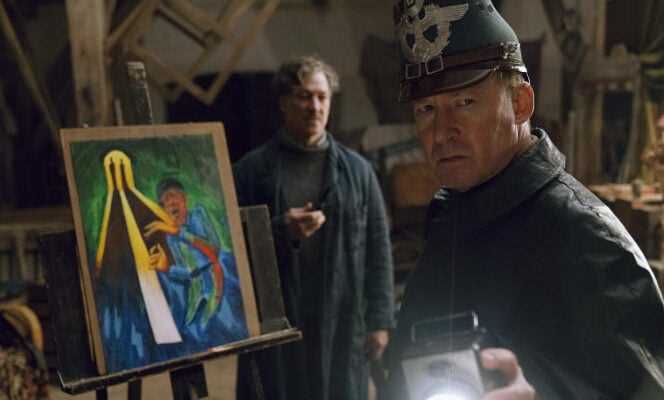Siggi Jensen, a teenager detained in what is believed to be a penal institution, refuses to deliver an essay on “the joys of duty”. As a child, he witnessed the way in which his own father, a policeman in a village in northern Germany, applied, during the war, to the letter, the Nazi laws, in particular that which ordered him to confiscate the paintings, considered representative of a “degenerate art”, of one who was his friend before the war, then to ensure that this one can no longer touch a brush.
Siggi approaches the persecuted artist, who has become a surrogate father, while witnessing the inhumanity of his time, and that of his own father in particular. He thus tries to shelter the paintings not seized.
Spectacular images
Adapted from a novel by Siegfried Lenz published in 1968, Christian Schwochow’s film is a moral reflection, a bit uplifting, on blind obedience to the law and its consequences. The filmmaker does not hesitate, in support of his demonstration, to use beautiful spectacular images, sunsets over the North Sea, immense expanses of windswept dunes, in the middle of which the characters are tiny figures.
The seriousness of the company very quickly takes on a formal air. The end of the film is mysterious. Strangely, after the war, the hero, who had become a young man, began to steal and hide the works of his neighbor who had become famous. Is it because her own sister served as the artist’s nude model? Is it because he inherited the genes of censorship? Are these the actions of a deranged young man? How to consider this cancel culture spontaneous and before the letter which mimics the prohibitions of Nazism?
German film by Christian Schwochow. With Ulrich Noethen, Tobias Moretti, Levi Eisenblätter (2 h 05).
